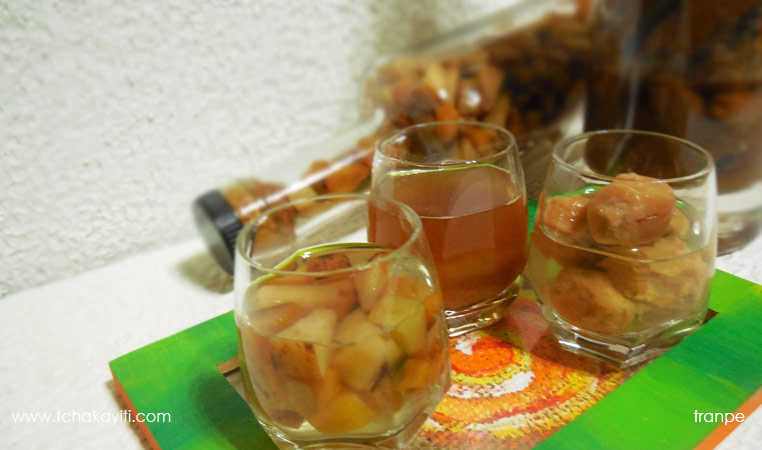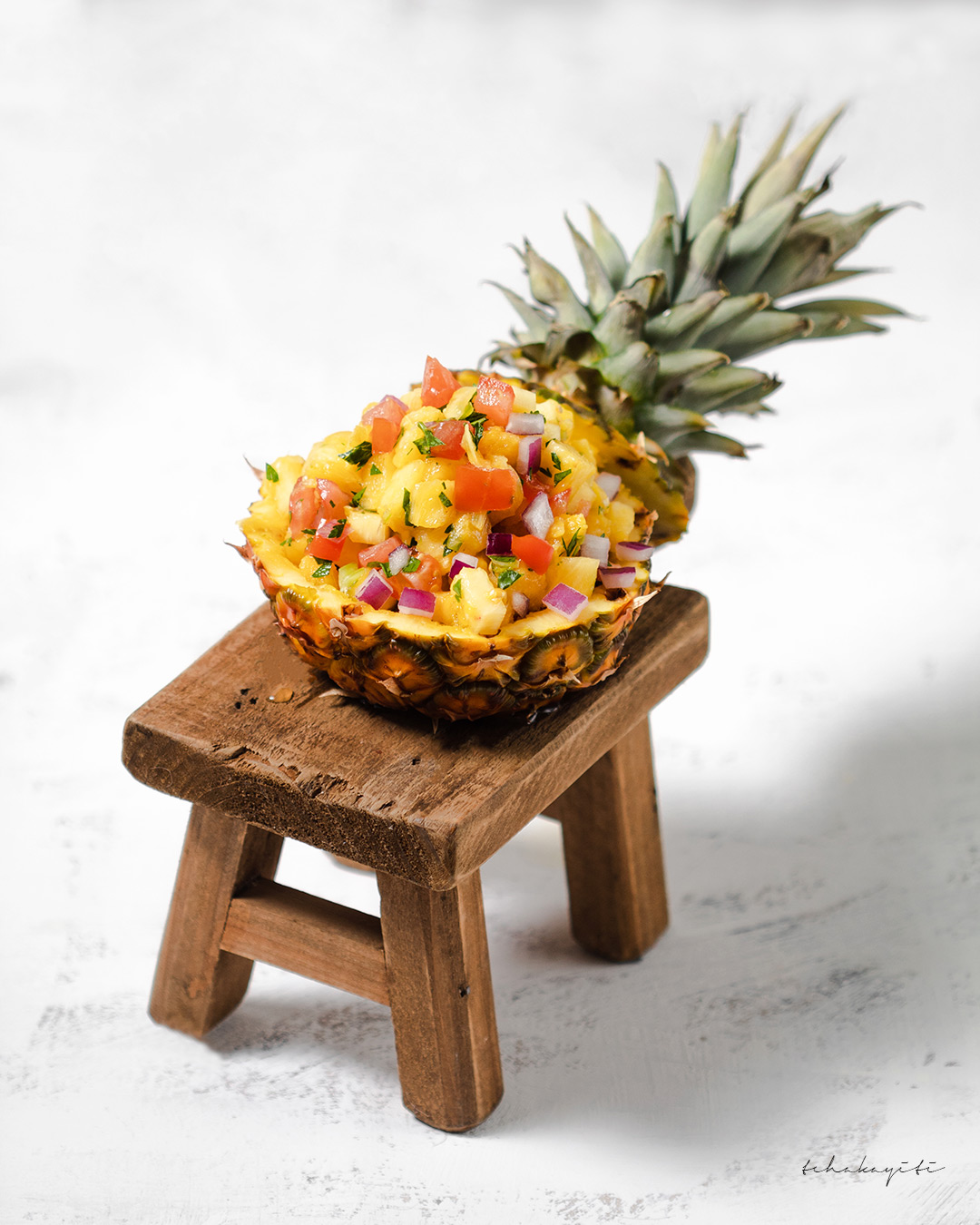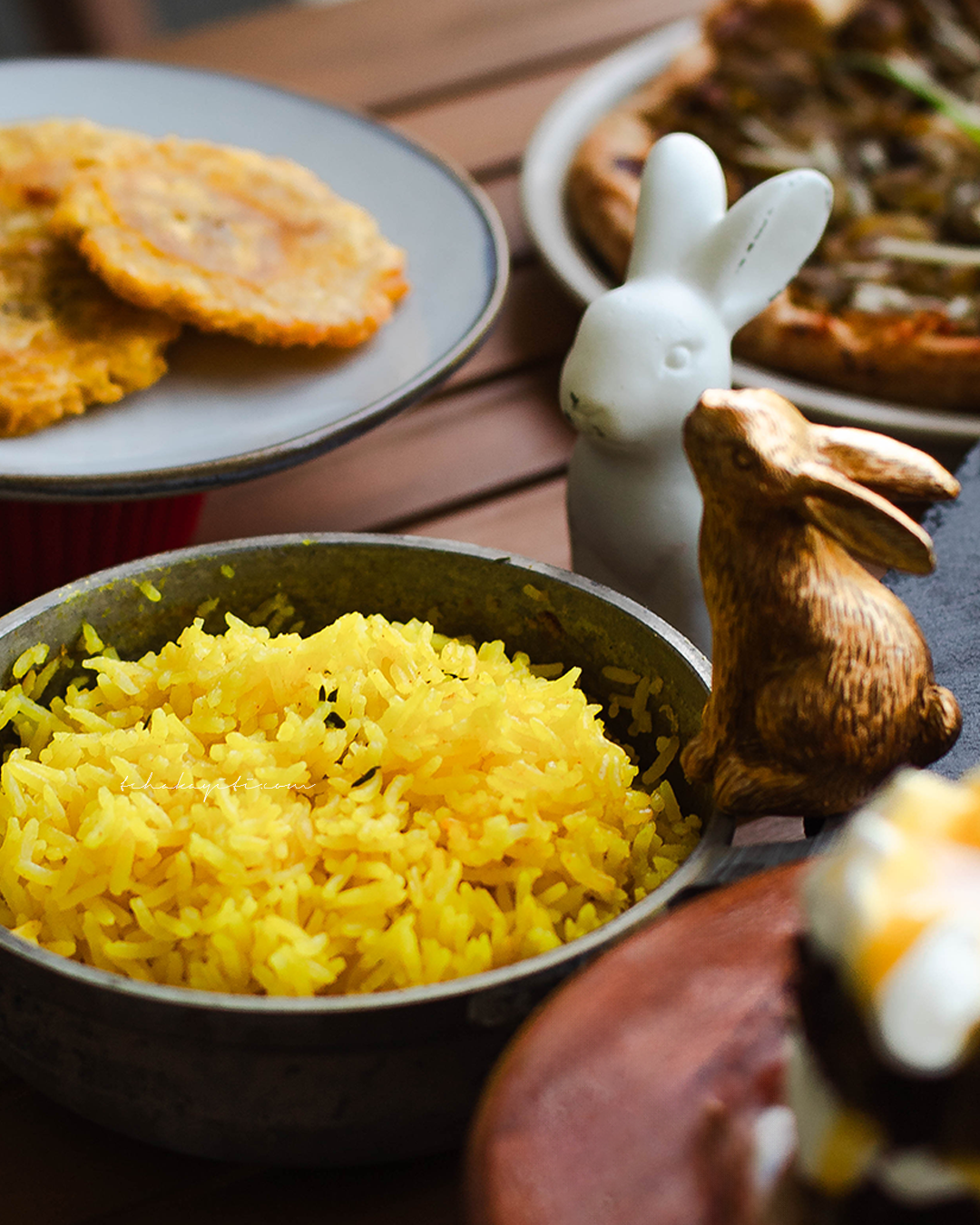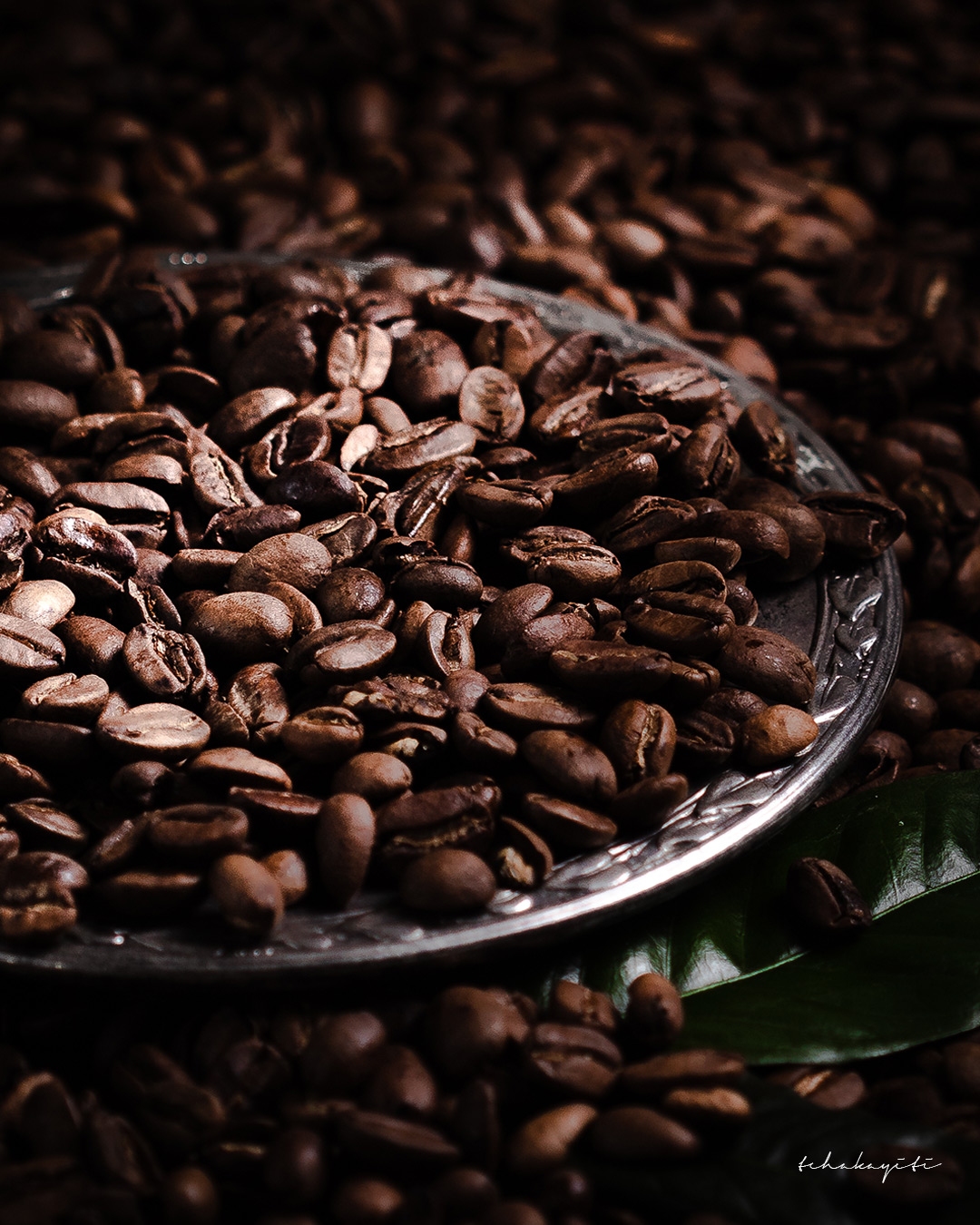Bottles of all shapes, sizes and colors are often lined up on shelves as part of the décor in many homes in Haïti, which is not unusual here for many collect empty drink bottles.
Actually, these bottles may no longer hold their original drink, but that does not mean they are necessarily unfilled. In my own home, ours are filled with homemade drinks prepared with the fruits of our orchard. In Haiti, these beverages are called “tranpe” and are made of goods that macerate in clairin (unfiltered white rum) for weeks, months and even years. I could make a long list describing the various tranpe flavors, which colors vary with the ingredient used. Fruit, sweet spices, fruit peels and even some roots are in fact used for these beverages that acquire different colors over time.
My father has been preparing his with loquat and quenêpe that he lets macerate for years, a practice we don’t always support for we find his tranpe too strong or simply dislike their taste. Dad never really pays much attention to our negative comments, however, and he might actually be right to ignore us. This year, my mother joined him on this tranpe making adventure, and we now enjoy a glass of tranpe from time to time, which now gives dad the chance to comment on our new habit just like we did to him throughout the years.
“You’ve critized my tranpe, and now look at you also making your own” is a phrase we now hear from him quite often. And he is not wrong.
I must, however, confess that I prefer my mom’s apple and tamarind tranpe. She adds sugar to the mix and lets it macerate for much less time which results in a sweeter, milder and better tranpe than those that soak for months in our clairin, in my humble opinion.
The length of maceration, as you may already know, increases the alcohol content of these loquats, strawberries, tamarind, cherries, cinnamon or anise drinks, to mention just a few of those sweet fruits and spices used to make our tranpe. And, without sugar, they taste even stronger than they actually are.
I can hear some of you say, maybe rightfully, that my mom’s preparation is not typical of our tranpe because of the added sugar. Regardless, I will keep encouraging her to add sugar to them because I find them much more enjoyable.
Now to you, dear readers, I say: join in on the adventure. Pick a fruit you love and let it macerate in some white rum to make your own tranpe. If you are braver than I am, keep it for months or years without adding sugar, and let me know how it goes.
By the way, they are excellent to warm one up during cold periods 😉
Ingredients
- Fruit of your choice
- Clairin (white rum)
- Sugar (optional)
Instructions
- Peel the fruit and slice it up
- Add it to a bottle (a dark one is prefererred) and mix in some clairin or white rum. If you want a sweet tranpe, add some sugar to the mix
- Let macerate for a couple of weeks, months, or years in a cool dry place. The amount of time depends on how strong of a drink you want
- Once ready serve as is in small shot glasses or with ice.








3 Comments
Je ne savais pas comment on appelait ça en Haïti, ici c’est punch tout simplement en Guyane ou la Réunion je ne sais plus c’est “rhum arrangé”. Il m’arrive aussi d’en faire et on ajoute aussi tu sucre dès le départ.
Une autre manière d’utiliser les quénèpes (quénètes en Guadeloupe) et de les confire avec du sucre. On utilise au fur et à mesure dans du rhum, un ou deux dans son petit verre de rhum et un peu du sirop.
Par contre méfiez-vous, je ne suis pas certaine que c’est moins fort avec le sucre. À ce que j’ai déjà entendu, ce serait même le contraire, que le sucre augmenterait le degré de l’alcool. Avec le sucre c’est plus agréable, on a l’impression que c’est plus doux mais ça reste fort.
En tout cas j’adore.
ah oui c’est certain, un cocktail sucré s’avale plus vite mais monte aussi vite dans la tête.
Vive le “tranpe” pour la saison des fetes. Et comme le dit Annick, le temps de maceration peut etre court. Il suffit que vous y laissiez fondre la touche de sucre qui vous convient. Et regalez-vous! Joyeuses Fetes!